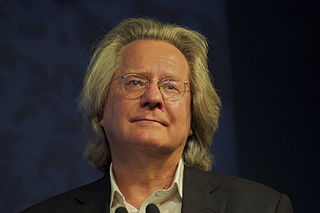A Quote by Samuel Johnson
Philosophy has often attempted to repress insolence by asserting that all conditions are leveled by death; a position which, however it may defect the happy, will seldom afford much comfort to the wretched.
Related Quotes
Confusion conditions activity, which conditions consciousness, which conditions embodied personality, which conditions sensory experiences, which conditions impact, which conditions mood, which conditions craving, which conditions clinging, which conditions becoming, which conditions birth, which conditions aging and death.
I shall often go wrong through defect of judgment. When right, I shall often be thought wrong by those whose positions will not command a view of the whole ground. I ask your indulgence for my own errors, which will never be intentional, and your support against the errors of others, who may condemn what they would not if seen in all its parts.
Disregarding all evidence to the contrary, the student of Truth will maintain that he lives in a PERFECT Universe and among people potentially perfect. He will regulate his thinking to meet this necessity and refuse to believe in its opposite. At first he may be influenced by conditions, and he may appear weak, but as time goes on he will PROVE TO HIMSELF that his position is a correct one, for that which appears imperfect will begin to slip from his experience
This good fellowship - camaraderie - usually occurring through the similarity of pursuits is unfortunately seldom super-added to love between the sexes, because men and women associate, not in their labors but in their pleasures merely. Where, however, happy circumstances permit its development, the compounded feeling proves itself to be the only love which is strong as death - that love which many waters cannot quench, nor the floods drown, besides which the passion usually called by the name is as evanescent as steam.
All of our miseries are nothing but attachment. Our whole ignorance and darkness is a strange combination of a thousand and one attachments. And we are attached to things which will be taken away by the time of death, or even perhaps before. You may be very much attached to money but you can go bankrupt tomorrow. You may be very much attached to your power and position, your presidency, your prime ministership, but they are like soap bubbles. Today they are here, tomorrow not even a trace will be left.
My position is a naturalistic one; I see philosophy not as an a priori propaedeutic or groundwork for science, but as continuous with science. I see philosophy and science as in the same boat--a boat which, to revert to Neurath's figure as I so often do, we can rebuild only at sea while staying afloat in it. There is no external vantage point, no first philosophy.
Though the man-apes often fought and wrestled one another, their disputes very seldom resulted in serious injuries. Having no claws or fighting canine teeth, and being well protected by hair, they could not inflict much harm on one another. In any event, they had little surplus energy for such unproductive behavior; snarling and threatening was a much more efficient way of asserting their points of view.
Puerto Ricans who find they can no longer afford to keep their pets often choose to drop their dogs, sometimes even whole litters of puppies, at a beach - sometimes under cover of night, in secret - rather than surrender the animal to a city or state-run shelter where the animals will face grim conditions and almost certain death by euthanasia.






































